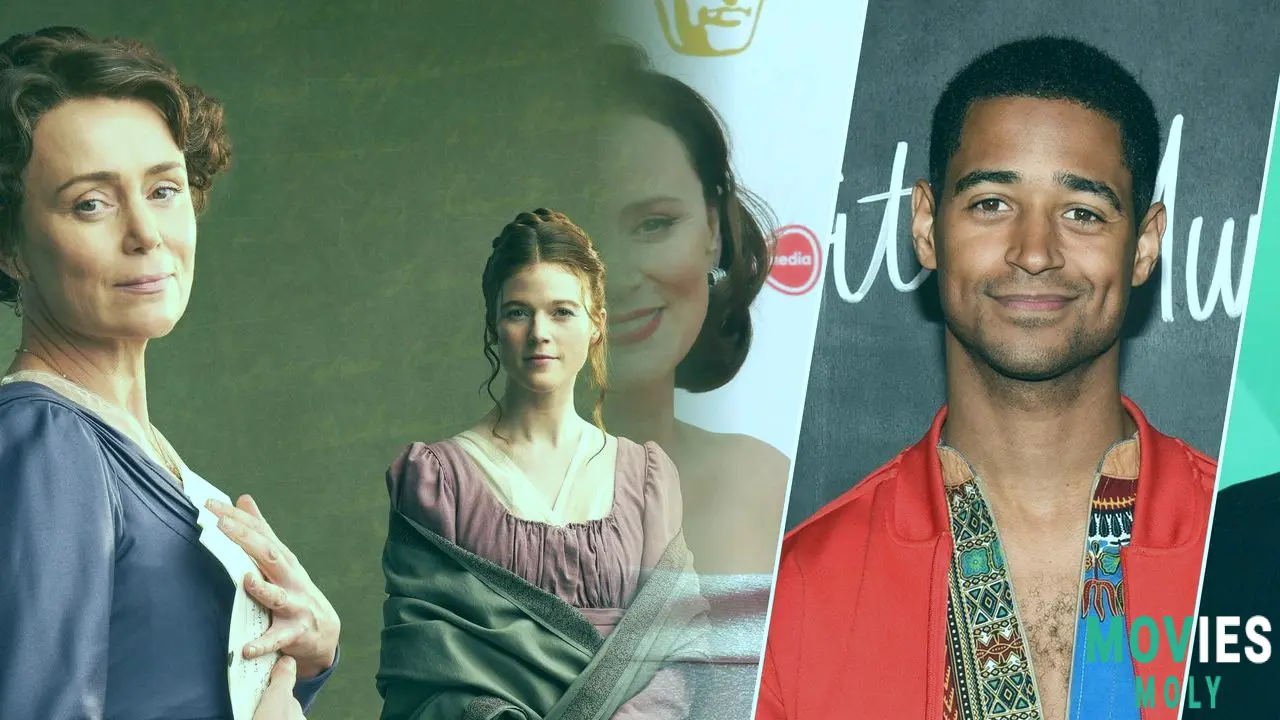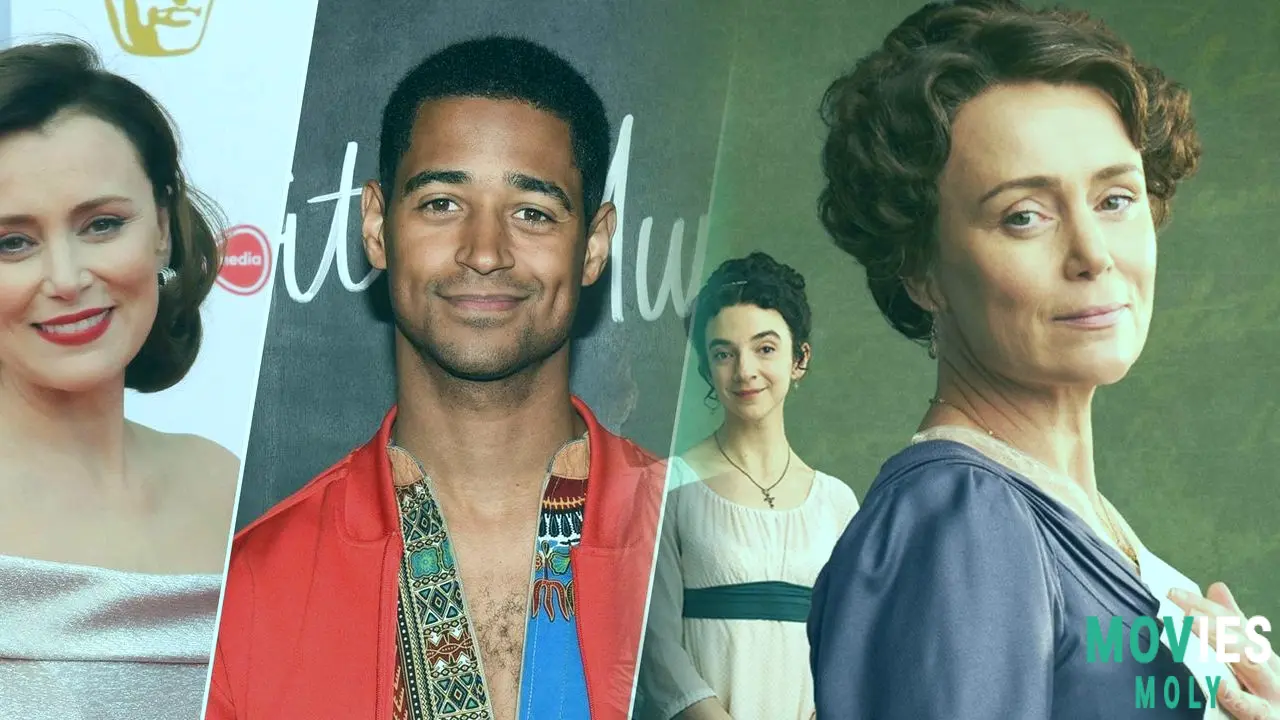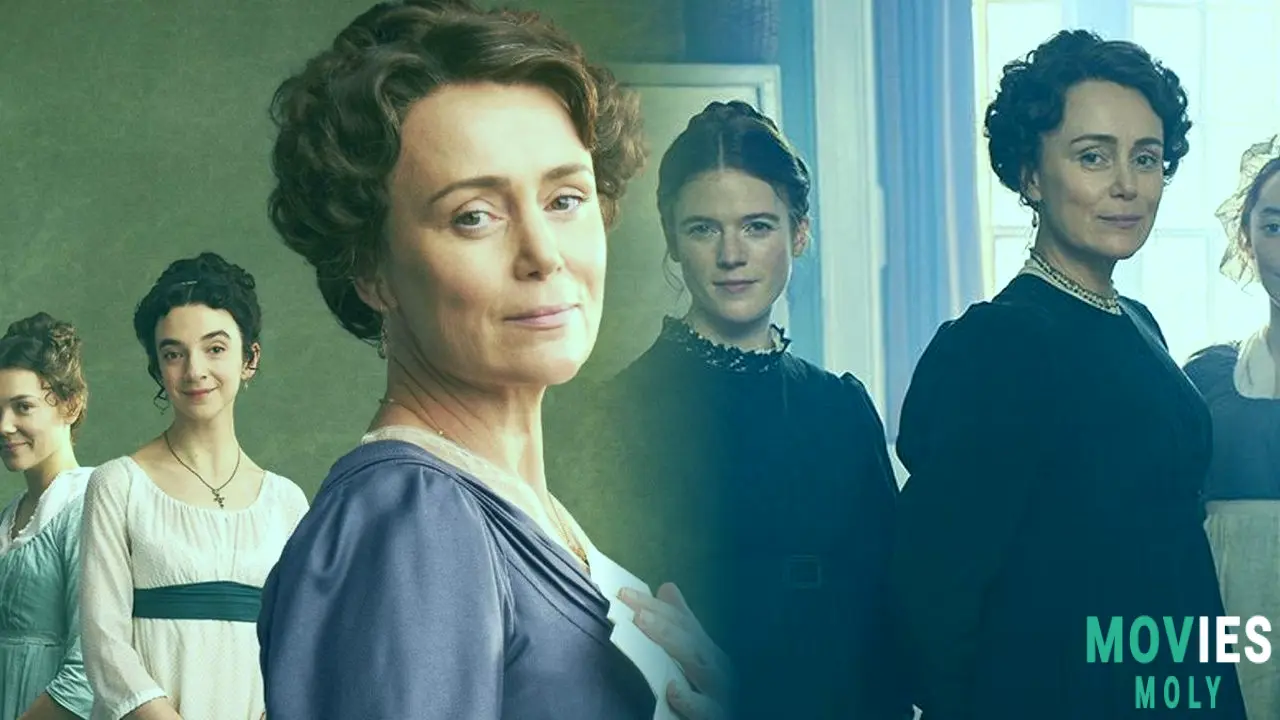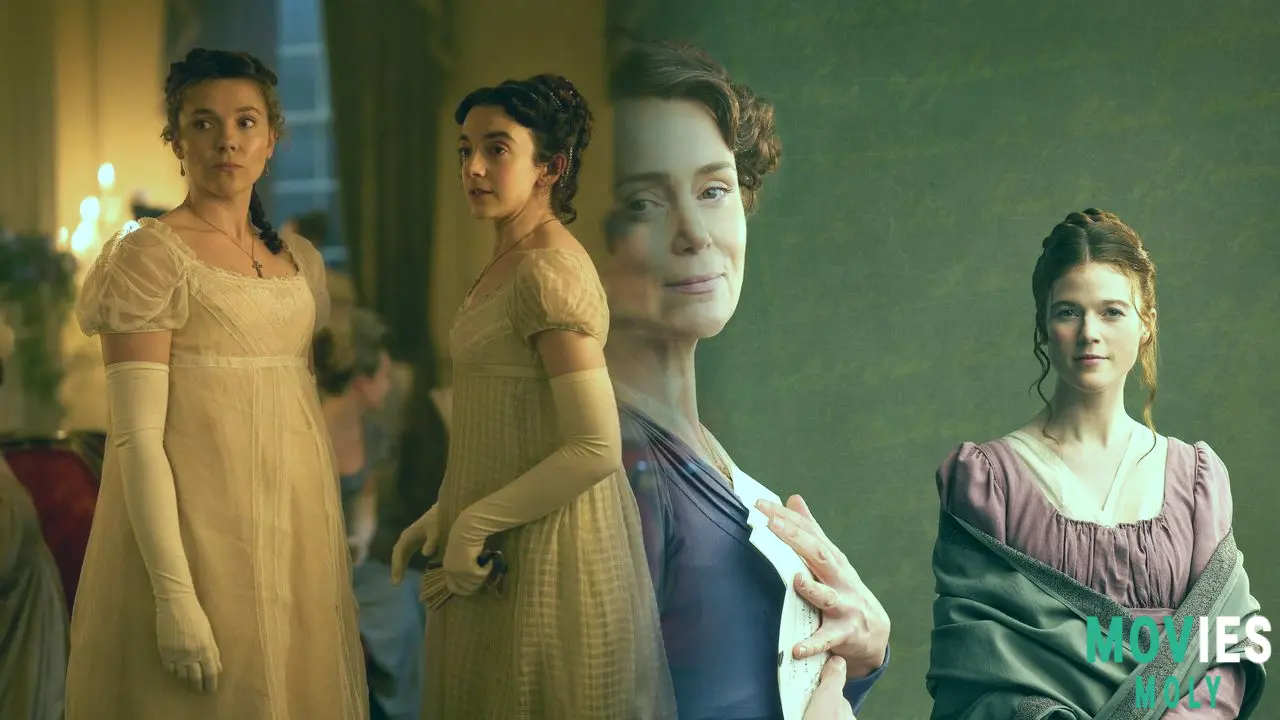Just like a well-placed cameo in a Marvel movie or a subtle nod in a DC comic, Miss Austen — the latest Pbs Masterpiece miniseries — is packed with thematic Easter eggs and emotional resonance that will delight fans of Jane Austen and period dramas alike.
But instead of superheroes or vigilantes, this literary thriller-turned-melodrama centers on two sisters: Jane Austen, the immortal author of social wit and romantic wisdom, and Cassandra Austen, her often-overlooked sibling and protector of her legacy. With a dual-timeline structure, sharp performances, and a plot that weaves love, loss, and literary legacy, Miss Austen manages to do what many Austen adaptations strive for but seldom achieve — it gives us a new lens through which to experience the genius of Jane Austen, all while standing firmly on its own.
Two Timelines, One Emotional Core, and a Feminine Bond That Breaks Through the CenturiesAdapted by Andrea Gibb from Gill Hornby’s 2020 novel and brought to life by a stellar cast led by Keeley Hawes, Miss Austen splits its narrative between 1830 and the years leading up to Jane’s death in 1817. The “present day,” if you will, follows an older Cassandra (Hawes) as she rushes to the home of her late sister’s friend Eliza Fowle (Madeline Walker), desperate to secure Jane’s letters — not just from prying eyes, but from those who would manipulate her legacy for their own gain.
It’s a clever storytelling device that thrusts Cassandra into a spiral of memory and emotion, triggered by her relationships with Eliza’s daughters, Isabella (Rose Leslie) and Beth (Clare Foster). As Cassandra secretly reads the letters, we’re pulled into flashbacks — some joyous, some haunting — where Synnøve Karlsen’s young Cassandra mirrors her older self in a dance of regret, love, and resilience. And then there’s Patsy Ferran’s Jane Austen, who in her brief but luminous screen time, shines not as a saint, but as a vibrant, complex woman with a sharp tongue and an even sharper mind.
More Than Just a Period Piece — It’s a Commentary on Women, Legacy, and the Price of Preservation

One of the most fascinating aspects of Miss Austen is how it turns historical inevitability into dramatic tension. We know, of course, that Cassandra destroyed most of Jane’s letters. But the series doesn’t ask us to judge her — instead, it seeks to understand her. Was she jealous? Overprotective? Simply human? The answer, like much in Austen’s world, is nuanced.
Jessica Hynes’ portrayal of the older Mary Austen, Cassandra’s sister-in-law and occasional foil, adds another layer to this. Mary isn’t just after the letters; she wants to control the narrative. And in that desire, we see a reflection of a timeless truth: history is often written by those who hold the pen, not by those who lived the story. Mary’s ambitions contrast sharply with Cassandra’s quiet determination, turning the battle for Jane’s legacy into a meditation on voice, agency, and what it means to protect — or silence — someone’s truth.
Every Character Feels Plucked from an Austen Novel — With Just Enough Modern Edge to Make Them Pop

From the optimistic Mr. Austen (Kevin McNally) who could easily be mistaken for a Mr. Bennet, to the worrisome Mrs. Austen (Phyllis Logan) who channels every bit of Mrs. Bennet’s energy, the supporting cast is nothing short of impeccable. Thomas Coombes’ Mr. Dundas, the intrusive vicar, is a clear nod to the obsequiousness of Mr. Collins, and the Fowle sisters’ march toward spinsterhood echoes the familiar societal tightrope that Austen’s heroines so often navigated.
Then there’s Henry Hobday (Max Irons), the fictional yet thematically perfect gentleman suitor to young Cassandra. Described by Jane as “the model of perfection, which, if I may say, is most infuriating,” he embodies Austen’s love-hate relationship with genteel courtship. And in the present-day storyline, Mr. Lidderdale (Alfred Enoch) — the devoted, if understated, village doctor — offers a different kind of romantic possibility, one grounded in care rather than chemistry.
Miss Austen Is For Anyone Who’s Ever Loved, Lost, or Lived Through an Austen Adaptation

What truly sets Miss Austen apart is its emotional honesty. It doesn’t glamorize the past, but it doesn’t grit its teeth through it either. It finds humor in social constraint, sorrow in unspoken words, and strength in sisterhood. As Cassandra says to Isabella, “There are so many other ways for women like us to find happiness.” It’s a line that cuts deep, not because it dismisses love, but because it acknowledges the reality of women's lives — then and now.
This is a series that understands what Austen’s works have always been about: the interior lives of women, the societal games they played, and the small rebellions they waged with wit and words. Miss Austen doesn’t just add to the Austen Cinematic and Literary Universe — it enriches it, giving us a character, a story, and a relationship to cherish beyond the pages of time.
So, whether you’re an ACLU (Austen Cinematic and Literary Universe) veteran or a newcomer looking for a period drama with heart, Miss Austen is your next must-watch. And as a bonus for the many who’ll catch the reference — Keeley Hawes is married to Matthew Macfadyen, aka TV Darcy. If that’s not casting destiny, I don’t know what is.




